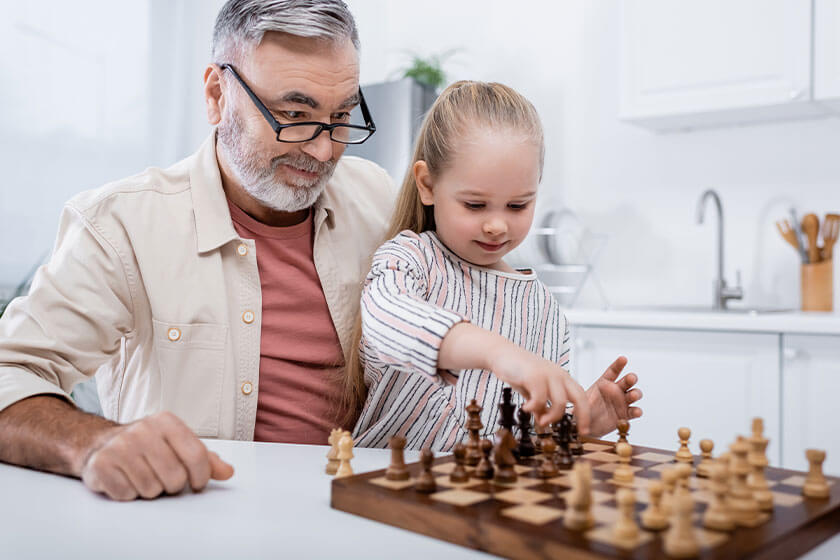There are many benefits of playing chess for elderly loved ones. The activity can help improve memory, focus, concentration, and problem-solving skills. Chess also ensures the mind is kept active, which is important as we get older. Offering more than just cognitive benefits, a game of chess helps to improve social skills and inculcate a sense of accomplishment and purpose. Here are some benefits of playing chess for aging adults.
Improve Problem-solving Skills
Playing chess helps your loved ones improve problem-solving skills, especially when it comes down to spatial navigation and planning. This is due to a rise in activity in the hippocampus, which is linked to learning and memory.
Improve Memory Skills
In a study published in the journal Neurology, playing chess was proven to be able to improve strategic and memory thinking in those with mild cognitive impairment (MCI) – the stage between Alzheimer’s disease and normal cognitive decline. After three months of playing chess, the study discovered that participants’ scores on tests of strategic thinking and memory improved. It is believed that the games helped to keep the brains of the elderly active.
Improve Decision-making Skills
Chess has been proven to improve the decision-making skills of aging adults. The University of Texas at Dallas found through a study that playing chess helps to delay the development of Alzheimer’s disease and dementia in aging adults.
The study looked at two groups of seniors, one of which played chess and the other of which did not. The group that played chess showed a significant increase in their decision-making skills, while the group that did not play chess showed a significant decrease in their decision-making skills. Chess is a complex game that requires strategic thinking. It is therefore not surprising that it can improve the decision-making skills of seniors.
Improve Strategic Thinking Skills
Children and young adults have played chess for the longest time as it improves strategic thinking skills. Recent studies have shown that this is also the case for aging adults. The journal of Applied Cognitive Psychology published a study that found that playing chess helps improve the strategic thinking skills of aging adults. The study discovered that those who played chess gained higher marks on tests of strategic thinking than individuals who did not play chess. Additionally, aging adults who played chess delivered a better performance on tests of mental flexibility and problem-solving. This indicates that playing chess can help improve a wide range of cognitive skills
Improve Reading Comprehension Skills
A recent study suggests that chess also helps better reading comprehension skills. Researchers discovered that aging adults who played chess improved such skills by up to 12%. In the research, 101 individuals were randomly assigned to one of three groups: those who did crossword puzzles, those who played chess, and those who did neither.
The chess group displayed the highest improvement in reading comprehension skills. The control group showed a modest 2% improvement, while the crossword puzzle group did not improve at all. According to the research, the chess group’s improvement was because of the rise in working memory capacity that playing chess provides.







